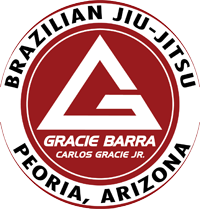How Effective Is Brazilian Jiu-Jitsu for Self-Defense?
In the realm of self-defense, few martial arts disciplines rival the effectiveness of Brazilian Jiu-Jitsu (BJJ). Originating from the Gracie family in Brazil, BJJ has earned its reputation for being a highly practical and efficient system for neutralizing threats, regardless of the opponent’s size or strength. While its roots lie in competitive combat, the techniques of Brazilian Jiu-Jitsu seamlessly translate into real-world self-defense scenarios. Let’s explore the intricacies of BJJ techniques and how they empower individuals to protect themselves effectively.
BJJ’s hallmark lies in its emphasis on leverage, technique, and ground fighting, making it an accessible choice for practitioners of all backgrounds. At the forefront of this discipline is Gracie Barra Peoria, renowned experts in Brazilian Jiu-Jitsu who have honed their craft to perfection. With a legacy steeped in the tradition of excellence, Gracie Barra Peoria stands as a beacon of expertise, offering unparalleled instruction in the art of self-defense through BJJ.
When compared to other martial arts, Brazilian Jiu-Jitsu distinguishes itself through its focus on ground fighting and submission techniques. Unlike striking-based arts such as Karate or Taekwondo, which rely primarily on punches, kicks, and blocks, BJJ emphasizes clinching, takedowns, and grappling to control and neutralize opponents. This ground-centric approach is particularly advantageous in self-defense scenarios where the fight may end up on the ground, allowing BJJ practitioners to maintain control and apply effective techniques even in close-quarters combat.
Control and Takedowns: Central to self-defense is the ability to control the pace and direction of an altercation. BJJ equips practitioners with a myriad of techniques for gaining control over opponents, including clinches, grips, and leverage-based maneuvers. With precise execution, practitioners can seamlessly transition from controlling positions to executing takedowns, effectively neutralizing threats and gaining the upper hand.
Guard Mastery: When the fight inevitably goes to the ground, proficiency in guard techniques becomes indispensable. BJJ practitioners excel in utilizing the guard position to their advantage, utilizing their legs to control and manipulate their opponent’s movements. From the guard, practitioners can execute sweeps to reverse positions or apply submissions, effectively turning the tide of the fight in their favor.
Dominant Positions and Escapes: Establishing dominance is key in self-defense situations, and BJJ offers a plethora of techniques for achieving and maintaining dominant positions such as mount and back control. From these vantage points, practitioners can assert control over their adversaries while minimizing the risk of harm. Additionally, BJJ equips practitioners with effective escape techniques for situations where they find themselves at a disadvantage, allowing them to regain control and turn the tables on their opponents.
Defense Against Strikes: In real-world confrontations, attackers may resort to strikes in an attempt to overpower their victims. BJJ practitioners are trained to neutralize these strikes by closing the distance and utilizing clinches, takedowns, and ground fighting techniques. By taking the fight to the ground, BJJ practitioners can nullify the effectiveness of strikes while positioning themselves for effective counterattacks or submissions.
Realistic Scenario Training: Integral to mastering BJJ for self-defense is realistic scenario training, where practitioners engage in live sparring sessions to simulate real-world encounters. This hands-on approach allows practitioners to test their skills against resisting opponents, honing their reflexes, timing, and decision-making abilities under pressure.
In conclusion, Brazilian Jiu-Jitsu emerges as a potent tool for self-defense, offering practitioners the skills and confidence needed to protect themselves in a variety of situations. With Gracie Barra Peoria as guides and mentors, individuals can embark on a journey of empowerment, mastering the art of Brazilian Jiu-Jitsu and equipping themselves with the tools they need to navigate the complexities of self-defense with confidence and skill.
